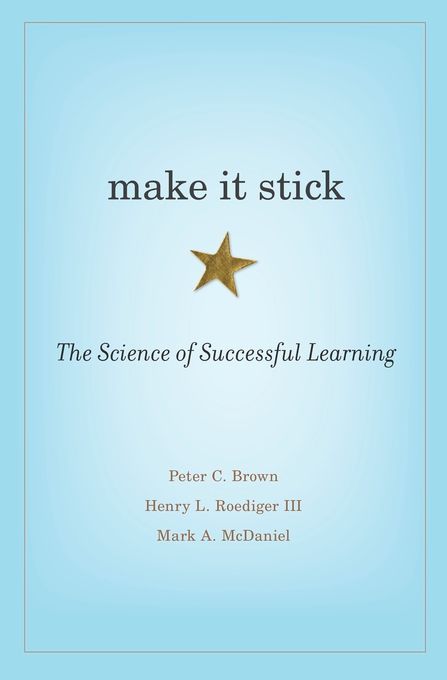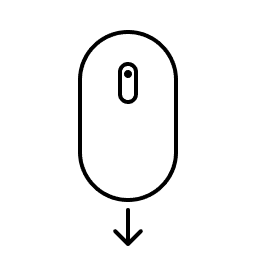Snippets about: Education
Scroll left and right !
Social-Emotional Learning: Therapy Disguised As Education
Social-emotional learning (SEL) has become a pervasive part of school curricula, aiming to teach kids "self-awareness," "social awareness," "relationship skills," "self-management," and "responsible decision-making." In practice, this often involves teachers eliciting highly personal information from students, documenting it, and providing feedback.
Despite claims it improves behavior and achievement, many teachers report SEL induces emotional dysregulation in students. Lacking therapists' training and ethical boundaries, educators are ill-equipped to manage the fallout. Rather than boosting learning as promised, SEL disrupts it with psychological meddling of dubious benefit.
Section: 2, Chapter: 4
Book: Bad Therapy
Author: Abigail Shrier
A Brief History of Jewish Quotas
In the 1920s, Harvard president Abbott Lawrence Lowell was disturbed by the growing numbers of Jewish students earning admission on academic merit. He proposed capping Jewish enrollment at 15% - high enough to avoid charges of overt discrimination, but safely below the "tipping point" where Jews might undermine Harvard's WASP cultural majority.
To achieve this quota without explicitly barring Jews, Lowell pushed for evaluating applicants on subjective traits like "character" and "leadership," as well as legacy status, geographic diversity, and athletic talent. Lowell's vision of favoring "well-rounded" applicants over pure scholastic achievers remains the template for elite college admissions today.
As one historian put it, Lowell "bequeathed to us the peculiar admissions process that we now take for granted." His policies for social engineering became so embedded, we forgot they were engineered at all.
Section: 2, Chapter: 5
Book: Revenge of the Tipping Point
Author: Malcolm Gladwell
Good Parenting Might Not Be Enough To Overcome Bad Circumstances
The authors tell the story of two boys, one white and one black, to illustrate how much circumstances and environment matter regardless of parenting:
- The white boy grew up in suburban Chicago with encouraging, educated parents and a stable home environment. He excelled in school and was thought by teachers to be a math prodigy.
- The black boy grew up in the ghetto of Daytona Beach. His mother abandoned him, his father beat him, and he began selling drugs and carrying a gun by his teens.
On paper, the first boy should go on to great success while the second was likely headed for failure or imprisonment. But in fact, the opposite occurred. The white boy grew up to be Ted Kaczynski, the infamous Unabomber. And the black boy was Roland Fryer, the highly successful economist now professoring at Harvard.
The point is that even the best parenting intentions can be derailed by mental illness, trauma, or other uncontrollable factors. Good parenting improves a child's odds but doesn't guarantee the outcome.
Section: 1, Chapter: 5
Book: Freakonomics
Author: Steven D. Levitt, Stephen J. Dubner
Chapter 7 Summary
Chapter 7 provides valuable insights into the elements of a successful education system that prioritizes equity, intrinsic motivation, and student well-being. Finland's example demonstrates that achieving greater things in education is not about competition or pressure, but about creating a culture of opportunity where every child has the chance to discover and develop their hidden potential.
Section: 3, Chapter: 7
Book: Hidden Potential
Author: Adam Grant
Human Approach to Teaching Math and Science
"What a wonderful stimulant it would be for the beginner if his instructor, instead of amazing and dismaying him with the sublimity of great past achievements, would reveal instead the origin of each scientific discovery, the series of errors and missteps that preceded it—information that, from a human perspective, is essential to an accurate explanation of the discovery." - Santiago Ramon y Cajal
Section: 1, Chapter: 8
Book: A Mind for Numbers
Author: Barbara Oakley
The Problem With Classroom Learning
Achieving transfer - the ability to apply abstract classroom learning to messy real-world problems - has been called the "Holy Grail" of education. Yet research shows that even top students frequently fail to transfer their knowledge to new situations.
The issue stems from how formal education is structured. Classroom learning is often abstract and de-contextualized from real-world applications. It prioritizes memorizing facts and procedures over practicing skills in context. This trains students to execute set problem types but leaves them ill-equipped to transfer that knowledge to novel situations.
Enter the directness principle. Directness is ultralearning's answer to the transfer problem - learning a skill by doing it in the context you want to use it. The closer your practice matches your target environment, the more readily your skills will transfer.
Section: 1, Chapter: 6
Book: Ultralearning
Author: Scott Young
Unintended Harms Of Excessive Academic Accommodations
Angela allowed her son Jayden to receive a 504 plan for untimed tests in high school due to his anxiety, on the advice of his counselor. But she believes it ultimately did more harm than good. "I really regret it because he used it as a crutch. Like, 'Oh, I can't turn the paper in on time because I have a 504 [plan],' " Angela said. "We thought we were helping, and I realized all these things are not helpful."
Teachers report a surge in students, often without a formal diagnosis, getting "accommodations" like extended deadlines, permission to miss class, or exemptions from assignments deemed too stressful. The line between legitimate disability accommodations and avoidant coping has blurred.
Section: 2, Chapter: 5
Book: Bad Therapy
Author: Abigail Shrier
Waldorf Schools Create Vaccine Skepticism
Across California, Waldorf schools - a chain of alternative private schools - consistently have the lowest vaccination rates in their areas, often under 50%. Researcher Elisa Sobo found this stemmed not from parents choosing Waldorf because they were already vaccine skeptics, but from parents absorbing vaccine skepticism over time from the Waldorf school culture and community. Demonstrating how certain environments can shift beliefs and behavior.
Section: 1, Chapter: 1
Book: Revenge of the Tipping Point
Author: Malcolm Gladwell
Students Full Of Empathy, Devoid Of Decency
An elite NYC private school girl became a pariah after joking with friends over text about ill-advised Halloween costumes (like dictators or abstract concepts). Though her intent was benign teen humor, not genuine bigotry, classmates reported her to the administration for racism and anti-Semitism.
The incident epitomizes a broader trend. The same schools most aggressively teaching "social-emotional skills" like empathy are often cauldrons of vicious student-on-student cruelty. Researchers find over-emphasis on empathy counterintuitively fuels self-righteousness and merciless treatment of "offenders." In trying to create kinder campuses, progressive pedagogy has unleashed a new meanness instead.
Section: 2, Chapter: 8
Book: Bad Therapy
Author: Abigail Shrier
Rugby Team Used By Harvard To Control Demographics
In 2013, Harvard University created a varsity women's rugby team, despite already having the most sports teams of any college. This let them recruit dozens of additional student-athletes. Admissions data shows that athletes are accepted at dramatically higher rates than non-athletes, even with significantly lower grades and test scores.
Rugby recruits skew heavily white and come from posh prep schools worldwide. Gladwell argues this is how Harvard maintains its desired "group proportions" and slyly practices affirmative action for affluent white applicants.
Section: 2, Chapter: 5
Book: Revenge of the Tipping Point
Author: Malcolm Gladwell
The World Doesn't Care What You Majored In
"I don't know what I want to do when they graduated. What people are doing now is usually not something that they'd even heard of in undergrad. One of my friends is a marine biologist and works at an aquarium. Another is in grad school for epidemiology. I'm in cinematography. None of us knew any of these jobs even existed when we graduated."
Section: 1, Chapter: 1
Book: Co-Intelligence
Author: Ethan Mollick
The Case For Teaching Memory Skills
The success of Raemon Matthews' students raises important questions about education. In an age of smartphones and Wikipedia, factual knowledge can seem obsolete - memorization dismissed as an archaic relic.
But cognitive scientists make a convincing case that memory is the foundation of higher thinking skills. You can't analyze what you don't know. Critical thinking depends on a rich body of memorized facts and concepts that can be fluently retrieved and combined. But many students today suffer from shockingly sparse mental models of history, science, art, and culture - crippling disadvantages in an innovation economy.
Foer argues memorization and critical thinking aren't opposites but two sides of a well-rounded mind. Just "knowing how to think" isn't enough - you need something to think about. By bringing memory training techniques into the classroom, teachers can help students quickly build the background knowledge they need to engage with complex ideas.
Section: 1, Chapter: 9
Book: Moonwalking with Einstein
Author: Joshua Foer
A Roadmap For Restoring Healthy Childhood
- Remove the "spoons" - all the interventions making your kid miserable without even realizing it. Limit social media, over-scheduling, handwringing over grades and milestones.
- Detach from the feelings-centered feedback loop. Don't fret over their every mood. Respond to actual problems, not hypotheticals. Let them come to you.
- Recognize kids' natural antifragility. Tolerable stress and disappointment fuel growth, not damage. Stop treating them like hothouse flowers.
- Don't immediately pathologize your kid's quirks and struggles. Every deviation from the norm isn't a symptom. Give them space to be an individual.
- Question the "experts." Mental health professionals aren't infallible and may give awful advice. You know your child best - don't surrender authority to clinicians.
- (Re)introduce healthy risk and autonomy. Let them test their capabilities. Failure won't kill them - it's instructive. Rescuing them from every scrape erodes their plasticity.
- Foster deep family and community bonds. The "therapeutic alliance" is a weak substitute for lifelong connections. Resist narratives that relatioships are disposable.
Section: 3, Chapter: 12
Book: Bad Therapy
Author: Abigail Shrier
The Coming Disruption Of Education
Just as AI is transforming the world of work, it is poised to upend traditional models of education. The author argues that the rise of large language models (LLMs) like GPT-4 will accelerate a shift towards personalized, adaptive learning - but not without significant challenges and uncertainties along the way.
AI tutoring systems powered by LLMs have the potential to provide every student with the kind of one-on-one coaching and real-time feedback that is currently a rare luxury. However, the author also highlights the disruptive impact that AI is already having on traditional educational assessments and practices. The ability of LLMs to generate human-like text across a wide range of prompts has effectively rendered many homework and essay assignments obsolete as measures of student learning.
Section: 2, Chapter: 7
Book: Co-Intelligence
Author: Ethan Mollick
SEL Undermines Parent-Child Relationships
Across SEL curricula, a troubling theme emerges: encouraging students to question their parents' judgment and cast them as obstacles to their well-being. Lesson plans often present conflicts with parents (on issues like screen time or clothing choices) and invite classmates to weigh in on whether the parent or child is being more reasonable. Students are asked to evaluate their parents on metrics like emotional supportiveness and time spent together.
Some programs go further, explicitly coaching students to monitor their home lives and report back concerns to teachers. The implication is that school staff are the real experts on a child's best interests, and parental authority is something to be challenged.
Section: 2, Chapter: 4
Book: Bad Therapy
Author: Abigail Shrier
Cultivate Growth Mindset Parenting, Teaching, And Coaching
- Praise the process (effort, strategies, persistence) rather than ability. Say things like "I'm proud of how hard you studied for that test" rather than "You're so smart!"
- Treat failure as an opportunity to learn and improve. Ask "What did you try? What could you try next?" rather than reassuring children that the task was impossibly difficult.
- Emphasize that brains and talent are just the starting point. Teach children that dedication and resilience are the keys to success in the long run.
- Explicitly teach children about brain plasticity and the growth mindset. Have them think about areas where they once struggled but now excel due to effort.
- When children succeed, express pride not in their abilities but in their commitment to learning and improving.
Section: 1, Chapter: 7
Book: Mindset
Author: Carol Dweck
The Rise Of The Classroom "Shadow"
A growing number of students now have a dedicated adult aide or "shadow" that follows them throughout the school day. Shadows are now assigned for much broader behavioral issues like distractibility, social difficulties, or to provide emotional support and on-the-spot therapeutic interventions.
While intended to help kids succeed and prevent stigma, many students figure out which classmate a shadow is assigned to. It's unclear whether the constant adult presence and surveillance actually boosts learning and autonomy or hinders kids' self-regulation and problem-solving abilities in the long run.
Section: 2, Chapter: 5
Book: Bad Therapy
Author: Abigail Shrier
The Dangers Of High-Stakes Testing
A significant portion of Chapter 1 is dedicated to exploring how high-stakes standardized testing can lead to cheating by teachers and administrators. As school rankings, funding, and teacher pay started being tied to test results in the 1990s, some teachers began manipulating results by:
- Giving students correct answers during the test
- Filling in answers themselves after the test
- Selectively reporting results from certain students
Mathematical analysis by the authors uncovered cheating in around 5% of classrooms per year in the Chicago Public School system. This shows how incentive schemes can be exploited when the stakes are high enough.
Section: 1, Chapter: 1
Book: Freakonomics
Author: Steven D. Levitt, Stephen J. Dubner
AI Can Decouple Education From The Factory Model Of Schooling
The authors discuss how AI could enable a transformation of the education system from the current "factory model" where students progress based on age to a personalized model where each student receives customized instruction based on their individual learning needs and pace. Key points:
- In the factory model, the curriculum is tied to the student's age and grade rather than their individual progress, and teachers deliver one-size-fits-all instruction
- AI-powered adaptive learning systems can predict the optimal next lesson for each student based on their performance, enabling them to progress at their own pace
- Realizing this vision requires not just better AI but a redesign of the education system, including changes to student grouping, pedagogy, teacher training, facilities, etc.
Section: 2, Chapter: 6
Book: Power and Prediction
Author: Ajay Agrawal, Joshua Gans, Avi Goldfarb
The Talented Tenth
Chapter 9 introduces the story of Raemon Matthews, a high school teacher in the South Bronx who uses memory techniques to help his disadvantaged students succeed. Matthews teaches at the Samuel Gompers Vocational High School, where many students come from poverty and score well below average on standardized tests.
But the group of students Matthews coaches for the memory competition, known as the "Talented Tenth," regularly win honors and go on to top colleges. The key, Matthews argues, is combining memory training with high expectations. By drilling his students on memorizing facts and figures from their textbooks using visualization and the memory palace technique, he gives them a tangible way to master academic content.
Even more important are the lessons in discipline, organization, and self-belief. By showing students they can overcome mental limitations to achieve seemingly impossible feats, Matthews convinces them they have what it takes to succeed no matter their background. Memory training instills an attitude of accomplishment that carries over to all their studies.
Section: 1, Chapter: 9
Book: Moonwalking with Einstein
Author: Joshua Foer
The World Doesn't Care What You Majored In
A twentysomething client who built a successful career in an unrelated field from her major said: "I don't know what I want to do when they graduated. What people are doing now is usually not something that they'd even heard of in undergrad. One of my friends is a marine biologist and works at an aquarium. Another is in grad school for epidemiology. I'm in cinematography. None of us knew any of these jobs even existed when we graduated."
Section: 2, Chapter: 5
Book: On The Edge
Author: Nate Silver
The Perils of Secretive Social Engineering
"Social engineering takes on a very different face, however, when the engineers go about their business in secret. There is far too much of this second, hidden kind of manipulation going on. If we are to protect the integrity of our institutions, we need to be made aware of the games being played below the surface."
Section: 2, Chapter: 5
Book: Revenge of the Tipping Point
Author: Malcolm Gladwell
Science In Corporate Captivity
Corporate investments in AI jumped from $14.6 billion in 2013 to $235 billion in 2022, while US government allocated just $1.5 billion to non-defense AI. This funding shift fundamentally altered AI research priorities around commercial rather than scientific merit.
From 2004 to 2020, AI PhD graduates heading to corporations jumped from 21% to 70%. Universities could no longer afford the compute needed for cutting-edge research. By 2020, 91% of the world's best-performing AI models came from industry. The result: AI development now serves profit motives rather than scientific advancement or public benefit.
Section: 2, Chapter: 7
Book: Empire of AI
Author: Karen Hao
How to Learn Anything: The Feynman Technique
Use the four steps of the Feynman Technique to develop deep understanding of any topic:
1. Set the Stage : Write the topic at the top of a page and research it broadly
2. Teach : Explain the topic to someone without prior knowledge, or write it as if explaining to a child, using simple language
3. Assess and Study : Identify where you got stuck or relied on jargon - these are the gaps in your understanding. Go back and study these areas more
4. Organize and Review : Refine your explanation into a clear, compelling story
This technique works because complexity and jargon often mask a lack of deep understanding. As Richard Feynman observed, "If you can't explain something simply, you don't understand it well enough."
Section: 3, Chapter: 20
Book: The 5 Types of Wealth
Author: Sahil Bloom
Transfer Is the Holy Grail of Education
"Transfer, the ability to apply classroom learning to real-world problems, is startlingly rare. In many studies, students with years of classroom learning failed to transfer basic concepts to new situations. Even small changes in problem formats caused students' learning to break down. Transfer is the "Holy Grail" of education that is seldom achieved through standard classroom instruction."
Section: 1, Chapter: 5
Book: Ultralearning
Author: Scott Young
Mental Health Surveys Teach Kids To Pathologize Normal Experiences
The mental health surveys administered by schools don't just ask students to disclose serious issues like abuse or self-harm. They also encourage adolescents to reinterpret normal challenges and stressors as major risk factors.
But by training kids to view these difficulties through the lens of potential trauma and mental health crisis, rather than simply part of life, the assessments make problems loom larger.
Students absorb the message that ordinary pains are extreme and may believe they're not equipped to handle them. Rather than promoting honest self-reflection and healthy coping skills, the surveys teach kids to ruminate on distress, see themselves as fragile, and turn to authorities for healing.
Section: 2, Chapter: 7
Book: Bad Therapy
Author: Abigail Shrier
Teaching Rethinking In Schools
Chapter 9 explores how to instill rethinking skills from a young age by making intellectual humility a bigger priority in education. Many students today see school as a place to perform rather than to learn - to demonstrate their knowledge rather than to question it. Projects that encourage rethinking can help:
- Explicitly teaching students that knowledge can evolve over time, using examples of once accepted "facts" that were later overturned
- Having students role-play different historical figures with opposing views to understand multiple perspectives
- Assigning creative projects like rewriting textbook passages to correct outdated information or omissions
- Prompting students to write advice letters to their past selves, reflecting on what they've rethought recently
- Hosting "passion talks" where students teach the class about something they've changed their minds on lately
Section: 3, Chapter: 9
Book: Think Again
Author: Adam Grant
Bridging the Achievement Gap
The KIPP Academy in the South Bronx demonstrates the impact of addressing cultural legacies and learning patterns on academic achievement.
- KIPP students, primarily from low-income, minority backgrounds, achieve exceptional results in math, outperforming their peers in traditional public schools.
- The key to KIPP's success lies in its extended learning time, including a longer school day, Saturday classes, and a shorter summer break.
- This approach counters the learning loss experienced by disadvantaged students during the long summer vacation, as highlighted in Karl Alexander's research.
Section: 2, Chapter: 9
Book:
Author:
Henry's Phoenix Moment
Although Henry worried he'd aged out of school, with support from Partners In Health he found a place at a secondary school where he excelled. He made friends easily and enjoyed the academic work. He wasn't just able to catch up to his peers; he earned admittance to the University of Sierra Leone, one of the nation's most prestigious institutes of higher learning, where he is now a second-year student studying Human Resources and Management. "Education is the most important thing," he told me once. "Not just for me, you know, but also for the nation."
Henry not only managed to return to school; he also started making online videos on YouTube. Sometimes, he makes videos of him dancing with friends. He also runs a channel for Isatu where she shares traditional Sierra Leonean recipes. In the years since his recovery, Henry has also become a TB activist with a special focus on raising money and attention for Lakka.
Section: 6, Chapter: 22
Book: Everything is Tuberculosis
Author: John Green
From Sage On The Stage To Guide On The Side
For educators looking to adapt to an AI-driven future, the author recommends a fundamental shift in pedagogy - from the traditional "sage on the stage" model of content delivery to a "guide on the side" approach emphasizing active learning and problem-solving.
In this new model, instructors would spend less time lecturing and more time curating AI-generated explanations, examples, and assessments. Class time would be dedicated to Socratic discussion, group collaboration, and hands-on projects - activities that build on foundational knowledge while honing uniquely human skills like empathy, creativity, and critical thinking.
Section: 2, Chapter: 7
Book: Co-Intelligence
Author: Ethan Mollick
The World's Most Expensive Business School
Chinese suppliers agreed to work for Apple at razor-thin margins because the real value wasn't profit—it was education. Apple engineers sleeping on factory floors and working 18-hour days were providing the equivalent of an elite engineering education.
Key lessons suppliers gained:
- World-class quality control and zero-defect manufacturing
- Advanced automation and precision machining techniques
- Supply chain optimization and inventory management
- How to scale luxury products to mass-market volumes
The knowledge was then applied to other clients at much higher margins. Apple inadvertently created the most effective technology transfer program in history.
Section: 5, Chapter: 30
Book: Apple in China
Author: Patrick McGee
ACEs: An Unscientific Checklist For Lifelong Damage
The "adverse childhood experiences" or ACEs concept has become ubiquitous in education. It claims that kids exposed to various stressors (abuse, neglect, parental mental illness, etc.) are primed for a host of poor life outcomes from disease to delinquency.
But the original ACEs study was never intended as a screening tool for individuals. Misapplied, it massively overpredicts trauma prevalence and impact. Researchers conflate correlation and causation, retrospectively linking adult woes to childhood events. Genetics, temperament, and environment all influence whether difficulties derail or strengthen a child. Kids deserve high expectations and opportunities to prove their resilience, not preemptive pigeonholing as "damaged goods."
Section: 2, Chapter: 6
Book: Bad Therapy
Author: Abigail Shrier
"Restorative Justice" Leaves Misbehavior Unchecked
Under the banner of "restorative justice," schools have shifted from punishing student misbehavior to accommodating it as a mental health issue. When fights, bullying, or disruption occur, interventions focus on eliciting the perpetrator's underlying pain, not imposing consequences.
Teachers report the approach emboldens students to act out without fear of repercussions. Serious infractions like physical assault often receive only a "talking to." The touchy-feely response leaves victims feeling revictimized and fails to curb the most violent offenders, who quickly realize they can get away with almost anything. Therapeutic victim-blaming has made schools less safe for the rule-following majority.
Section: 2, Chapter: 5
Book: Bad Therapy
Author: Abigail Shrier
Books about Education
Therapy
Parenting
Psychology
Society
Bad Therapy Book Summary
Abigail Shrier
In "Bad Therapy," journalist Abigail Shrier argues that today's pervasive "therapeutic" culture and overzealous mental health interventions are harming young people by promoting learned helplessness, pathologizing normal emotions, and inhibiting the development of resilience.
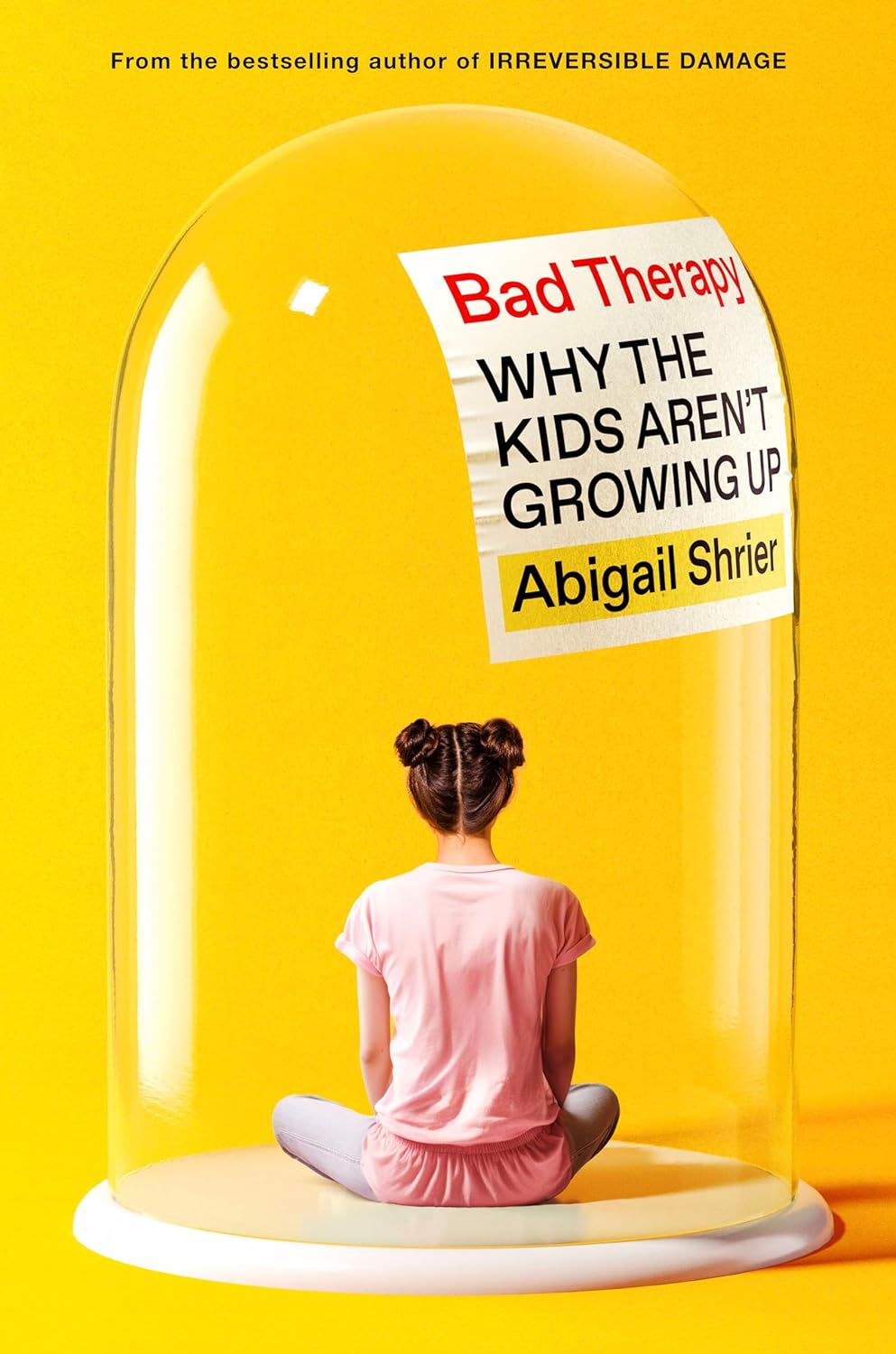
Learning
Education
Personal Development
Productivity
A Mind For Numbers Book Summary
Barbara Oakley
"A Mind for Numbers" by Barbara Oakley reveals the science-backed techniques and insights that can transform anyone's ability to excel in math, science and complex subjects by harnessing the brain's innate learning abilities.
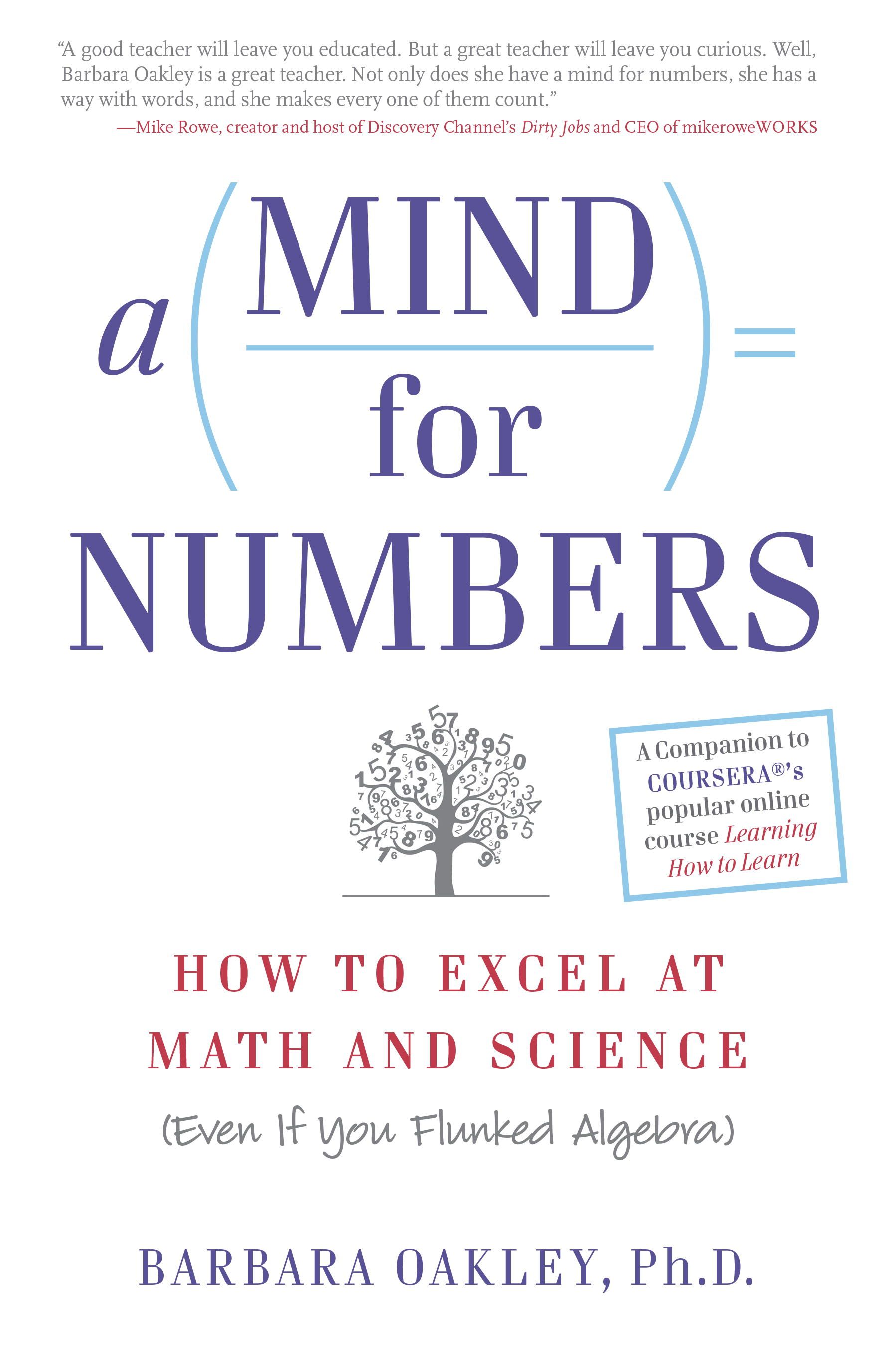
Learning
Education
Psychology
Personal Development
Mindset Book Summary
Carol Dweck
Mindset reveals the power of our beliefs to shape our lives, and shows how adopting a growth mindset - the belief that abilities can be developed through dedication and hard work - can help us achieve more than we ever thought possible in every area of life.
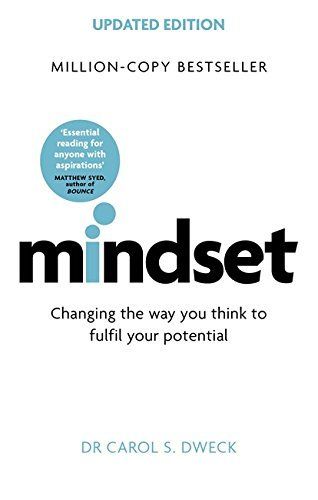
Psychology
Business
Personal Development
Think Again Book Summary
Adam Grant
Think Again is a compelling exploration of the power of knowing what you don't know, and how embracing the joy of being wrong and actively questioning your opinions can help you make better decisions
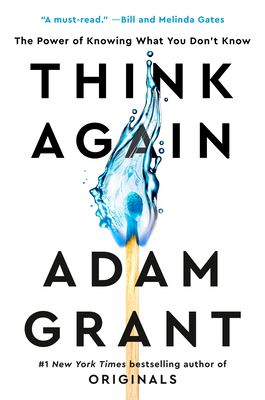
Learning
Education
Psychology
Productivity
Personal Development
Make It Stick Book Summary
Peter Brown, Henry Roediger, Mark McDaniel
Make It Stick offers powerful, evidence-based strategies for deeper, more durable learning - spacing, retrieval, interleaving, elaboration, generation, and reflection - that challenge conventional study habits and unlock our full learning potential.
